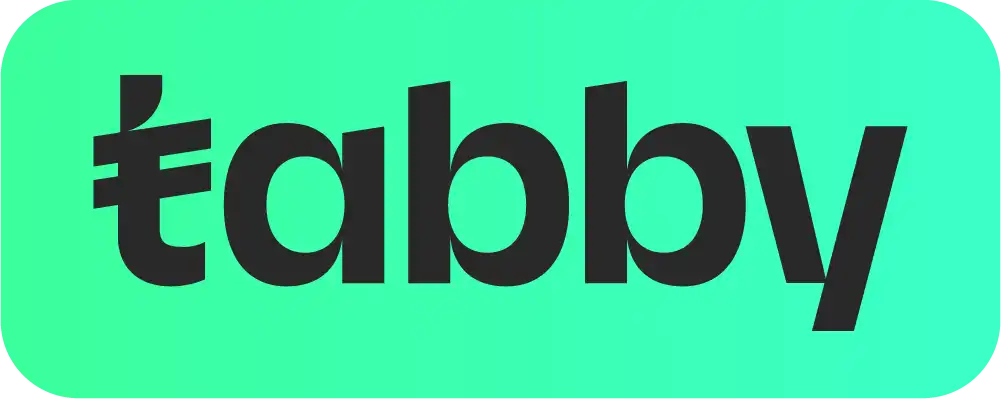Are you thinking about pursuing a career in technology? Or perhaps, you’re already exploring the world of web development? If so, you’ve probably come across the term “Full Stack Developer.” The role of a Full Stack Developer has gained significant attention in the tech world, with many considering it a lucrative and promising career path. But the question is, Is full-stack developer a good career in 2025?
The demand for Full Stack Developers has been steadily growing, as businesses continue to require skilled professionals who can manage both the front-end and back-end of web development. As the technology landscape evolves, this role has become even more essential, bridging the gap between the user experience and server-side functionalities. But what does the future hold for Full Stack Developers in 2025? Will AI change the way developers work? Is it still a good time to start learning these skills?
In this article, we will dive deep into the world of Full Stack Development, exploring the role, its prospects, and the critical skills needed. By the end of this article, you will understand why Full Stack Development remains a top career choice for tech enthusiasts, especially in 2025. Whether you’re new to programming or considering a career switch, this guide will offer you the insights you need to make an informed decision.
Read on to discover how the Full Stack Developer career is evolving, what skills are in demand, and why 2025 is a fantastic time to dive into this field!
Will AI Replace Full Stack Developers?
Artificial Intelligence (AI) is revolutionizing many industries, but does it pose a threat to Full Stack Developers? The short answer is no – at least not for the foreseeable future. AI has made strides in automating tasks and providing tools to assist developers, but it still lacks the creativity, critical thinking, and problem-solving abilities that human developers bring to the table. While AI can handle repetitive coding tasks and offer suggestions through tools like code completion, it is not yet capable of managing the entire development process, especially when it comes to designing and implementing complex systems.
The rise of AI may even increase the demand for Full Stack Developers. As AI technologies become more advanced, developers will be needed to integrate AI solutions, build platforms to host them and maintain the systems that support AI applications. Full Stack Developers will remain essential for these tasks, as they can manage both the front-end and back-end aspects of development while ensuring that AI works seamlessly within applications.
Additionally, as AI continues to evolve, the skills required by Full Stack Developers will adapt. Developers will need to familiarize themselves with AI frameworks and libraries, integrating AI functionalities into web applications. So, rather than replacing Full Stack Developers, AI is likely to complement their skills, making them even more valuable in the workforce.
Is Python Good for Full Stack Development?
When it comes to Full Stack Development, Python is one of the most popular and versatile programming languages in 2025. Known for its simplicity and readability, Python has become a top choice for both beginners and experienced developers. It offers a wide range of libraries and frameworks that make it an excellent tool for building both front-end and back-end applications.
For the back end, Python is often used in conjunction with frameworks like Django and Flask. Django, in particular, is known for its robust features, including an automatic admin interface and security tools, which makes it a favorite among developers building complex, data-driven applications. Flask, on the other hand, is a lightweight and flexible framework, ideal for smaller applications or when a more hands-on approach is needed.
On the front end, Python can also be used indirectly through tools like Brython, which allows developers to write Python code that can run directly in the browser, interacting with the user interface. However, for the front-end development of full-stack applications, developers often use JavaScript, HTML, and CSS in combination with Python for back-end functionality.
Given its ease of use, scalability, and broad community support, Python is undoubtedly a great choice for aspiring Full Stack Developers. It allows you to handle both the front-end and back-end with a unified skill set, making it an efficient and powerful tool for modern web development.
20 In-Demand Full Stack Developer Skills
The Full Stack Developer role requires a diverse skill set that spans multiple layers of web development. In 2025, staying updated with the latest technologies and methodologies will be crucial to succeed in this field. Here are 20 in-demand skills for Full Stack Developers:
Front-End Development Skills:
- HTML5 – The foundational markup language for creating web pages.
- CSS3 – Used for styling web pages, ensuring they are visually appealing and responsive.
- JavaScript – A critical programming language for creating dynamic and interactive web applications.
- React.js – A JavaScript library for building user interfaces, particularly single-page applications.
- Vue.js – A progressive JavaScript framework used for building modern web applications.
- Angular – A platform for building single-page applications with a rich user experience.
- Responsive Design – The ability to design web applications that work seamlessly across devices (desktop, tablet, mobile).
- Bootstrap – A front-end framework that speeds up development by providing pre-built components.
- SASS/LESS – CSS preprocessors that make it easier to write and manage styles.
Back-End Development Skills:
- Node.js – A server-side JavaScript runtime environment, ideal for building scalable web applications.
- Python (Django/Flask) – Popular back-end frameworks that simplify the development of web applications.
- Ruby on Rails – A back-end framework for building web applications quickly with minimal coding.
- PHP – A widely used server-side scripting language for creating dynamic web pages.
- Java – A versatile programming language commonly used in large enterprise applications.
- SQL – Essential for working with relational databases and managing data.
- NoSQL (MongoDB, Firebase) – A database system used for managing unstructured data, commonly used in modern web apps.
- GraphQL – A query language for APIs that provides an efficient way to request and manage data.
DevOps and Deployment Skills:
- Docker – A platform for containerizing applications, making them easier to deploy and scale.
- CI/CD (Continuous Integration/Continuous Deployment) – A set of practices that enable developers to frequently update applications while maintaining stability.
- Cloud Computing (AWS, Google Cloud, Azure) – Understanding cloud services for deploying applications, managing infrastructure, and scaling web applications.
Having proficiency in these technologies will make you a versatile and in-demand Full Stack Developer, able to tackle complex web development tasks and stay ahead in the competitive job market.
How Much Does a Full Stack Developer Make in Dubai?
In 2025, Dubai continues to be a growing tech hub in the Middle East, offering ample opportunities for Full Stack Developers. The salary for a Full Stack Developer in Dubai varies depending on experience, skill set, and the company. On average, a Full Stack Developer in Dubai can expect to earn between AED 12,000 to AED 25,000 per month.
- Junior Full Stack Developers (0-2 years of experience) typically earn around AED 12,000 to AED 15,000 per month.
- Mid-level Full Stack Developers (2-5 years of experience) can expect to earn between AED 15,000 and AED 20,000 per month.
- Senior Full Stack Developers (5+ years of experience) can earn upwards of AED 20,000 to AED 25,000, with the potential for higher salaries in large organizations or specialized roles.
In addition to the base salary, many companies in Dubai offer benefits such as housing allowances, health insurance, and performance bonuses, making it an attractive destination for tech professionals.
Average Time It Takes to Learn Full Stack Web Development
Learning Full Stack Web Development is a journey that requires dedication, practice, and time. The amount of time it takes to become proficient as a Full Stack Developer depends on your prior experience, learning approach, and the time you can dedicate to learning. On average, here’s how long it might take:
- Beginner (No prior experience): If you’re new to programming, it may take anywhere from 6 to 12 months to learn the fundamentals of Full Stack Development. This includes learning HTML, CSS, JavaScript, and basic back-end technologies like Node.js or Python.
- Intermediate (Some experience with programming): If you have some programming experience, it might take 3 to 6 months to gain proficiency in Full Stack Development, as you can build on your existing knowledge and focus more on the frameworks and tools used in full-stack development.
- Advanced (Experienced in programming or web development): If you already have a strong background in web development, it may take around 1 to 3 months to master Full Stack Development, especially with a focus on advanced frameworks and deployment techniques.
Ultimately, the key to becoming a successful Full Stack Developer is consistent practice and working on real-world projects. By developing hands-on experience and staying updated with the latest trends and technologies, you can accelerate your learning and transition into a Full Stack Developer role.
Final Thoughts
The Full Stack Developer career remains one of the most promising and rewarding paths in the tech industry in 2025. With the demand for web applications continuing to rise, developers with expertise in both front-end and back-end technologies are highly sought after. The rise of AI and emerging technologies will continue to complement the skills of Full Stack Developers, making them even more valuable in the job market.
With the right set of skills, dedication, and continuous learning, you can embark on a successful Full Stack Developer career that offers competitive salaries and opportunities for growth. Whether you’re starting from scratch or looking to enhance your existing skills, 2025 is an excellent time to pursue this career.














